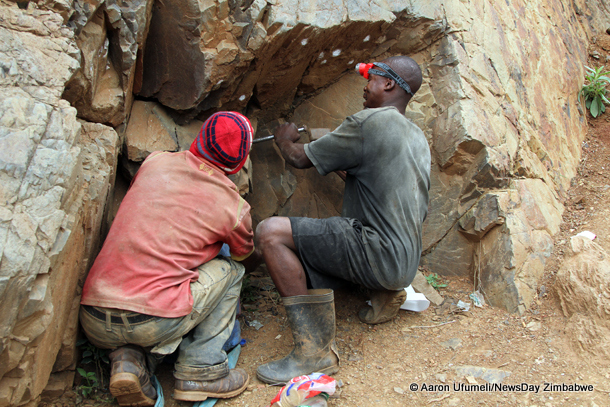
THERE is need for gender-responsive work in the extractive industry sector to ensure resource-led development is transparent, equitably distributed, and done in ways that result in the well-being of women, men, youth and children, a United Nation (UN) official has said.
BY MTHANDAZO NYONI
Addressing delegates at an alternative mining indaba in Bulawayo last week, UN women representative Melania Shayanewako said the extractive industry was driving gross domestic product (GDP) within a number of African economies, but women were always side-lined.
She said the continent possesses 10% of the world’s oil reserves, 40% of its gold ore, and no less than 95% of platinum group metals.
“Several countries in sub-Saharan Africa have gained substantial wealth from their resources, but more efforts are required to address the contribution of this wealth to inclusive growth, equitable poverty reduction and gender equality,” she said.
Shayanewako said government should create conducive environment for women to be included in extractive industry as they are often more reliable, follow rules, obey health and safety regulations and they make-up half the productive labour-force.
“Where women are involved in community consultations to decide priorities for investment of extractive industry resources — outcomes often have more sustainable development impacts. Gender equity can reduce community disruption or protest (and) employment of women brings community gains,” she said.
She said in as much as social, economic and environmental negative impacts of mining affect everyone, women are the most affected.
- Chamisa under fire over US$120K donation
- Mavhunga puts DeMbare into Chibuku quarterfinals
- Pension funds bet on Cabora Bassa oilfields
- Councils defy govt fire tender directive
Keep Reading
She added that the extractive industry in many African countries faces significant gender challenges ranging from the recruitment and retention of women, male dominated working and living arrangements, sexually transmitted diseases and so on.
“Gender parity in the mining sector is essential for sustained and equal growth of the sector. Economic empowerment and entrepreneurship initiatives for women in the surrounding economies are essential — the mining sector must focus on linking women enterprises to the supply chain of the sector (promote local content),” she said.
She added that governments, UN agencies, regional organisations, international organisations, donor agencies, civil society organisations, and global mining companies have begun to take steps to address gender equality concerns in the extractive industry.











